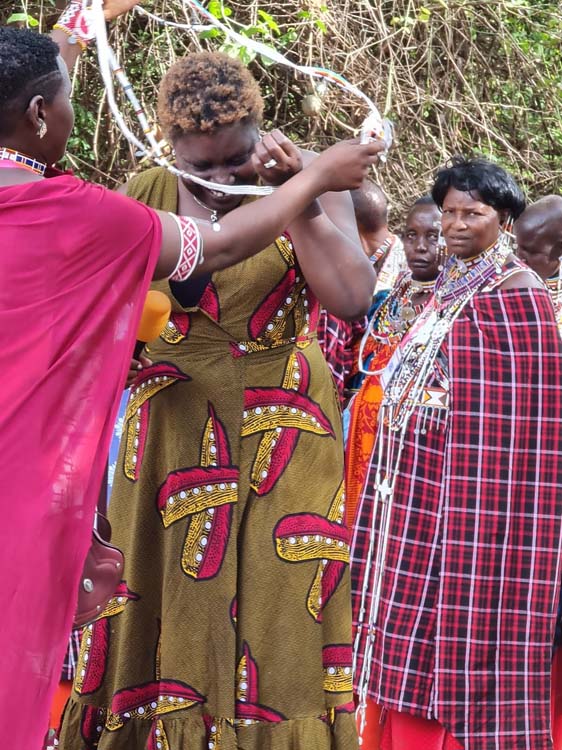Anti FGM Champions
February 22, 2021
FGM has physical, psychological, and social impacts on people’s lives.
Dressed in colorful red, blue and white cloth, with necklaces of white beads adorning his chest, 32-year-old Ole Lelein Kanunga sings and dances with his fellow Masai warriors. He is carrying a long dark-brown stick, symbolizing that he is their leader.
The dance, the attire, the symbolism — it’s all very traditional. But Ole Lelein is also a revolutionary. He wants to end the practice of female genital mutilation, or FGM, among the Masai in southern Kenya.

We have worked with Lelein on a number of workshops with the Pokot girls under the Helen Valverde Scholarship program. He has been very instrumental in bringing change to his community. The Masai warriors referred to as Moran’s are taught that it is unacceptable to marry an uncircumcised woman. When they are ready for marriage, the family of the man will pick out a suitable wife for him. The wife to be will be cut and passed on to the man. Age does not really matter, from 8 years onwards the girl is ready for marriage.
We became interested in Lelein’s story because he stood against the practice and is educating the Moran’s against it, too. He encourages the Masai to say no to FGM by marrying women who are not cut, and not to marry underage girls. Initially, he was not very popular in his community; the members could not understand why he would advocate against a practice that was part of their culture. Despite the ridicule and humiliation, he encountered, he pressed on and because of his efforts, there has been a lot of change within his community. Many of the girls now attend school, they have escaped the cut and have become a voice against FGM for the other girls in the community. Lelein also has to deal with the fact that he is a man campaigning against a practice widely considered a women’s affair. But he says he won’t give up. Although Masai men tend to make all the decisions at the household level, mothers have a big role in the execution of FGM. They initiate, organize and prepare this rite of passage for their daughters, so an important aspect of the programs is to teach mothers and their daughters about the consequences of FGM.
When he called The Choice Club for a function in his rural home, we were eager to attend and hear from him on the progress he has made. Because of his good work, he has been recognized by the anti FGM body as their mouthpiece in most of their conferences. He was happy to tell us that he finally boarded a plane, something he never thought possible. He was sponsored to go to Canada where he attended a conference on FGM.
The community has also recognized his hard work. He travels for miles saving girls who are at risk of FGM. The greatest achievement is that he has been made a chief of his village- that is a great honor. Now when he speaks people listen, no one can dare cross him on matters of FGM. He does not negotiate, and he has had very many practitioners of this vice jailed.
We were happy to attend this celebration. It was attended by many dignitaries and they all congratulated him for his tireless efforts. We were also given an opportunity to address the crowd where we encouraged the women to give the girl child an opportunity at an education. The Masai have a lot of wealth in form of cattle and goats. If well managed, this would be sufficient to educate their daughters, The Masai sell a lot of these animals to the slaughterhouses, and they fetch good money.
Lelein has become a star in his village; many young men now admire him and want to be associated with him.
Chief Lelein in traditional attire


Dignitaries attending the function

Grace addressing the guests

Beading is very significant in the Masai culture

The Member of Parliament for Kajiado West Hon. George Sunkuyia
